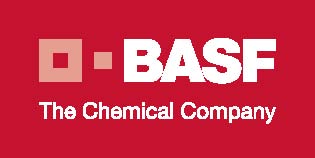Marsilius-Academy 2014
Synthetic biology: promises and perils of modern biotechnology
September 1st-5th at the Kurhaus Trifels Seminarhotel
Since the “creation” of a bacterial cell from a synthetically synthesized genome in Craig Venter’s lab, synthetic biology has been made known to the public and popularized tremendously. The basic concept of synthetic biology can be regarded as a consequential advancement of an evolutionary biological approach in systems biology that intends to specifically use, modify, and combine biological systems in vitro (evolution in a test tube).
But to what extent does synthetic biology exceed previous breeding and genetic research and what perils might it cause? What promises does synthetic biology offer, and what is the potential for abuse? How can one guarantee that social and ecological consequences will be evaluated at an early stage in research?
Answers to these and other questions will be developed during interdisciplinary discussions at the Marsilius Academy 2014. These discussions will focus on current research approaches from the perspectives of the humanities and the life sciences in order to open up dialogue between economists, lawyers, and ethicists.
Participants will have the opportunity to discuss various questions and research approaches with experts from various disciplines and dive deeper into the topics during workshops.
The summer school will be presented by the Marsilius Kolleg in cooperation with the Verein Begegnungszentrum Kurhaus Trifels e.V.
Organizers
Prof. Dr. Thomas Holstein (molecular evolutionary biology)
Prof. Dr. Klaus Tanner (theology, ethics)
Speakers
Prof. Dr. Florian Bauer, Stellenbosch University, South Africa (biology, enology)
Prof. Dr. Graham Dutfield, University of Leeds (GB), School of Law (intellectual property law)
Dr. Jürgen Eck, Zwingenberg (CTO, BRAIN Biotech)
Prof. Dr. Roland Eils, Heidelberg University (bioinformatics)
Dr. Arnold Sauter, Office of Technology Assessment at the German Bundestag, Berlin (technological impact assessment)
Prof. Dr. Christa Schleper, University of Wien (ecogenomics, systems biology)
Prof. Dr. Joachim Schummer, Berlin (philosophy)
Prof. Dr. Petra Schwille, Max Planck Institute of Biochemistry (biophysics)
Prof. Dr. Victor Sourjik, Max Planck Institute for Terrestrial Microbiology (molecular biology)
Prof. Dr. Oskar Zelder, BASF (biotechnology)
Target audience
Doctoral candidates and junior scientists from the sciences and the humanities who are interested in an interdisciplinary exchange regarding the topic of the summer school. The number of participants is limited to 20.
The lectures will be held in German and in English. A working knowledge of both German and English is therefore expected. Input and questions during the discussions may be formulated in English. Participation and accommodation are free of charge (stipend).
Venue
Application
www.marsilius-akademie2014.uni-hd.de
Contact
Lina Girdziute
marsilius-akademie2014@uni-hd.de
Stefanie Höger
stefanie.hoeger@cos.uni-heidelberg.de




